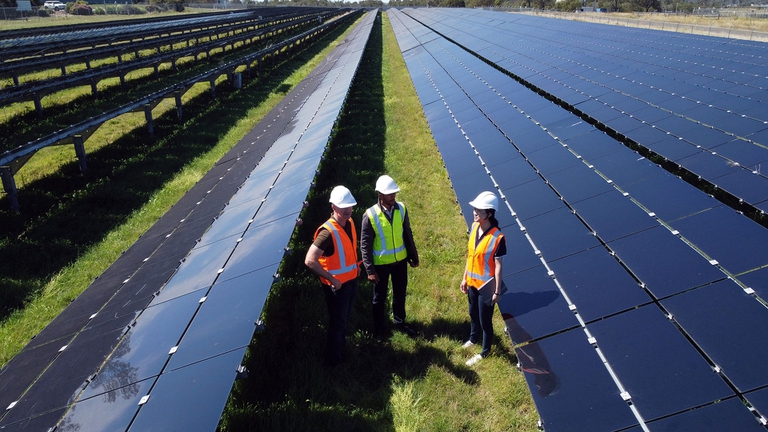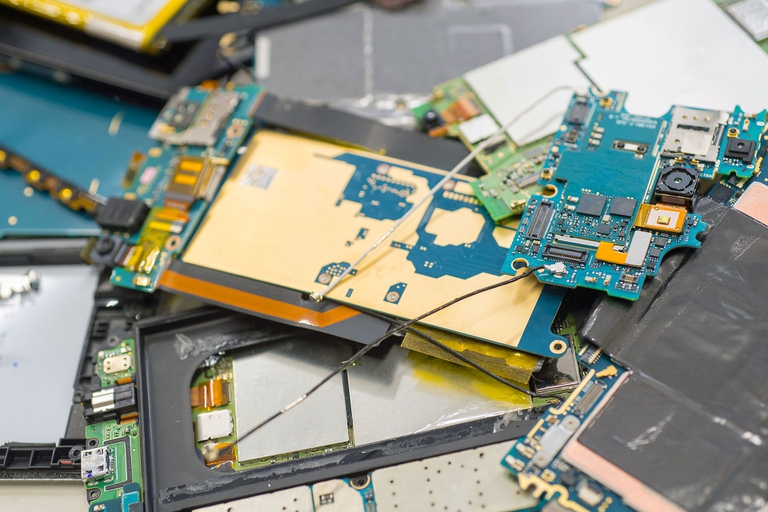https://www.lifegate.it/apple-impegno-ambientale
- |
Apple is a tech giant whose market capitalization is around three trillion dollars.It operates in hundreds of countries and each of its devices is the result of a very dense supply chain, a network of companies of all sizes, including the Taiwanese multinational Foxconn, which produce every “Apple” device we know.A similar reality obviously has a environmental burden equally widespread, ranging from logistics, transport to production, through the disposal of used devices and the elements that make computers and smartphones work.

All this would seem to run counter to the goal - announced by Apple in 2020 - of becoming a company carbon neutral within ten years:2030, after all, is not far away.However, the Cupertino-based company seems to have opted for a global approach to a global problem, working with companies in its supply chain to reduce emissions and pollution from its suppliers:Apple, in fact, does not produce its devices (there is no "Apple factory") and therefore relies on the contribution of hundreds of companies in every corner of the planet.
How Apple's environmental commitment translates
Many of these companies operate in countries where the environmental laws are much less restrictive than those in the European Union or the United States, yet about 60 percent of the company's major suppliers have agreed to produce Apple devices using "100 percent" energy sources.clean energy, globally.Some smaller producers have also made similar commitments, expanding the campaign desired by Apple.These are agreements and wordings that often take their time, between legal quibbles and the same difficulties of the energy infrastructure.
But Apple seems to have put its face to it.This program, according to data provided by the company, would allow you to avoid the emission of 13.9 million tonnes of greenhouse gases (the equivalent of the ecological impact produced by three million cars in a year).A plan on which the company claims to focus heavily and which is part of a trend common to other giants in the digital and technological sector, such as Amazon and Microsoft, all committed to promises and similar programs to reduce CO2 emissions.

The recycling of electronic devices
Another field in which Apple has invested for some time, obtaining rather concrete results, is that of recycling of your devices:the chips, the internal elements, the cameras, the batteries.They are sophisticated and very polluting products, from which rather precious materials can be obtained for the production of new devices.In 2021, Apple products could boast 20 percent recycled elements inside them, a record for the company. Recycle electronic devices it is not only a great thing for the environment but also a possible business that is increasingly attractive to companies in the sector:in fact, according to some estimates, a ton of cell phones would contain 80 times the amount of gold found in a ton of material from a gold mine.In short, a real mine that Apple and other players in the sector no longer want to waste.
In addition to the goal of becoming carbon neutral by 2030, the real "goal" is to cut the emissions produced by the company by 75 percent by the same date.The path is uphill - given that the company's emissions increased in 2021 - but the approach seems correct and ambitious:find a global solution to the environmental burden of a gigantic reality, which goes far beyond the luxurious headquarters surrounded by greenery in Cupertino, California.
